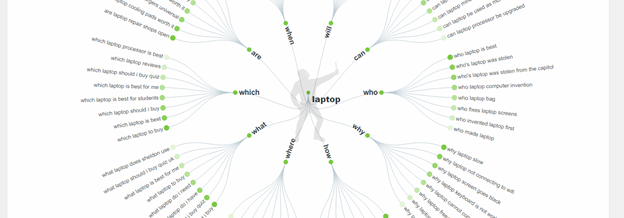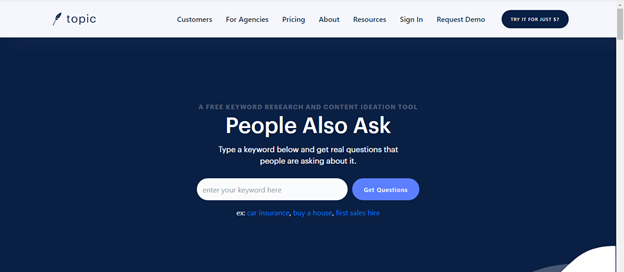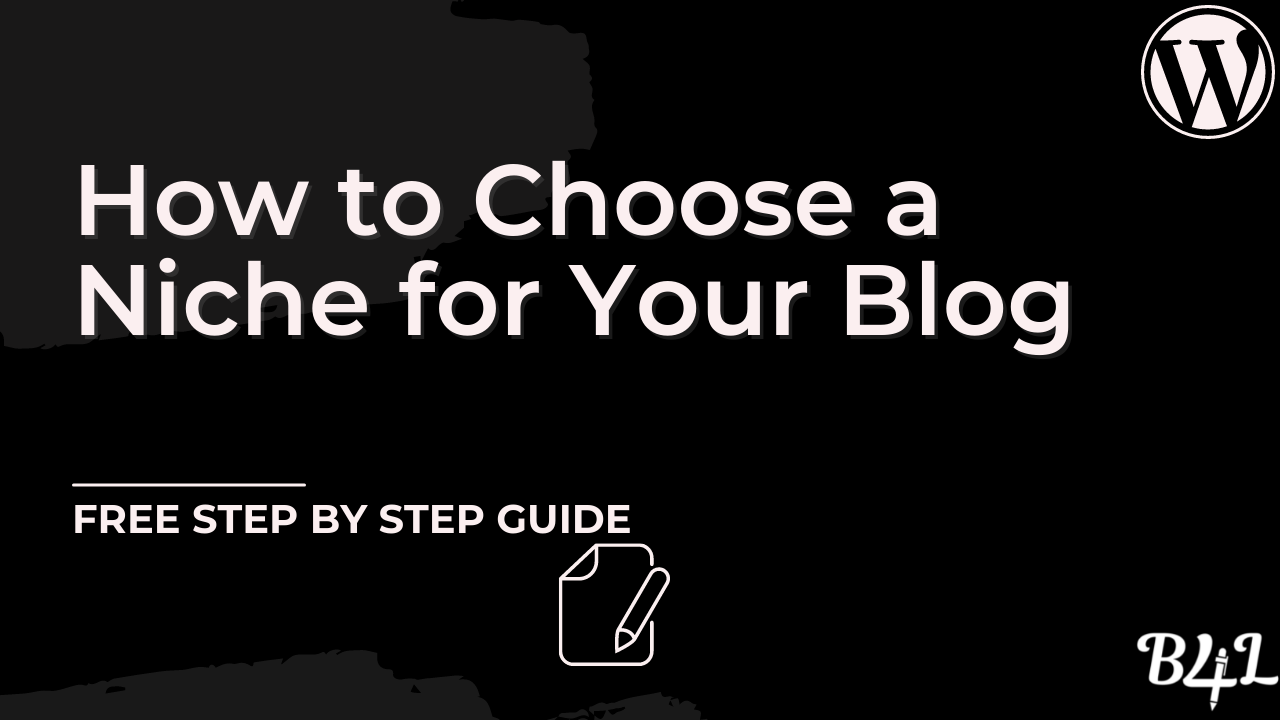Today, I’ll show you how to choose a niche for your blog without scratching your head in the process. I’ll share the exact process that I use to discover untapped and less competitive niches that can make you a ton of money.
So if you’re ready to start a blog, and you want to do it the right way from the beginning, you will love this guide.
To be honest, my first blog was a disaster. I thought that if I found low competition keywords in any vertical, creating and publishing content on the topics would skyrocket my site’s rankings.
I was wrong.
The blog was simply all over the place. Although my keyword research was on point (or so I think), my niche selection was a mess.
But blogging is an industry with a steep learning curve. And I’ve picked a couple of important lessons along the way that have helped me create successful niche websites that generate me four to six figures a month in passive income.
One of the most important blogging skills that I’ve cultivated ever since my first blog failed is niche selection. At the end of the day, niche selection is what determines whether you’ll start a blog that earns nothing or a scalable business that makes you four, five, or six figures a month.
What’s a Niche?
Before I show you how to pick a profitable niche for your blog, let’s first make sure you understand what the term means.
A niche is a specific topic that an expert or enthusiastic writer creates multiple pages around with a specific audience in mind.
Let’s say you have an interest in technology.
From the latest gadget at CES to the best-selling fitness equipment on Amazon, technology is no doubt a wide subject. So if you were to create a blog in this vertical, you’d spend the rest of your life creating content and struggling to rank on Google and other search engines.
Why?
It’s because technology isn’t a niche. It’s an industry with many niches under its hood.
If I were to start a tech blog today, for example, I would create a list of all possible niches in the category and then pick one topic to work on.
Why?
It’s simple; I want a potential audience to see me as an authority in one subject so that they can visit my blog more often than they can count.
Do you see where I’m going with this?
And besides, picking a niche doesn’t mean you’re spreading yourself too thin. If done right, niche selection can make it easy for you to create a lot of content even for a topic that looks quite tiny from a basic SEO perspective.
Steps To Follow When Choosing Your Blogging Niche & Topics
Step 1: Determine What You Are Good At

The first blogging advice I ever read online was that I should figure out my passion and create content around that.
Unfortunately, that’s a wrong approach to blogging.
Because, in addition to having a passion for something, you also have to have the expertise to create content around a subject and build authority.
Don’t get me wrong.
I have nothing against blogging about a topic that interests you. However, if you don’t have an understanding of the subject at hand, your blog content will end up being wishy-washy, and readers aren’t going to trust you.
In other words, figure out what you’re good at and write down a checklist. The checklist will be important when it comes to evaluating competition (which I will talk about later in this guide).
Step 2: Know Your Target Audience

This step is very important because it builds on the first one. In blogging, figuring the things that you’re good at isn’t enough; you also need to know your audience very well.
Look:
Everything I wrote on my first blog was about one purpose and one person: money and myself.
I didn’t have an audience specific purpose. All I did was publish commercial articles on my blog so that I could earn affiliate commission.
For a moment, it worked.
But when Panda and Penguin updates came, Google turned by blog upside down and I was out of business.
That’s what happens when you start blogging without a purpose. You tend to care less about value and Google and readers see your blog as pure garbage.
But if you know your audience well, from their pain points to the most frequently asked questions that they have, you can build a blog that will stand out against all odds and make you money for years.
Really, what you have to do in this step is to look at the topics in your checklist and find a central theme that resonates with your audience.
And if you’re struggling to find an objective for a given topic, it probably isn’t suitable for you. Simply remove it from the checklist and then refine your list.
Step 3: Evaluate the Profit Potential for the Niches in Your Checklist

Studying and understanding your audience isn’t the be-all-end-all to choosing a good niche. You also have to look at the profit potential of a given niche.
Unless you’re blogging for fun, which in my second guess isn’t the case, you want to focus on a niche that will make you a decent income when you start to scale.
To determine if your niche is monetizable:
- Check if there are affiliate programs with physical or digital products for the topics you’d like to cover in your niche. The more offers the niche has the better your chances of making money.
- Check how many bloggers create content and monetize in the same niche as you. Doing this before you pick a niche will enable you to determine whether the niche is profitable or otherwise.
Keep in mind that some niches are monetizable only via creating, promoting, and selling own products. So if you’re an expert in a given niche, you may want to consider selling your own products through the blog.
Step 4: Analyze the Competition
The number of niches in your checklist is probably lower by now, and that’s a good thing if you ask me
The next step is to analyze the competition to determine just how long it would take to rank your niche site and make money.
To be clear, niche site competition is a healthy thing. It means there’s market for the subject and money to make.
But too much competition isn’t healthy for your blogging life, especially if you’re just getting started with your first site.
Some niches, such as weight loss, are too competitive.

On the other hand, niches such as tents don’t have a lot of competition yet. And that means there’s still a bigger opportunity for new bloggers, like yourself, to create niche sites and make money

Use an SEO tool such as Ahrefs Keyword Explorer or Semrush to determine the difficulty of the niches on your checklist.
From my personal point of view as a blogger, it’s best to go for a niche that has many low competition keywords.
Doing so will make it easy for you to create high quality content, which need only a few backlinks to rank in the top 10 spots of Google’s first page.
A good example of a niche I would target when starting out is in the fashion space. From a random keyword lookup, I did find this

As you can see, that’s a medium-competition with an estimate of 60% organic clicks, which isn’t too shabby.
Step 5: How Much Content Can I Write for the Niche?
How many niches do you have left in your checklist so far?
Probably they’re only a few. And that’s a good thing because you’re absolutely in the right direction.
The last step in niche selection is to determine how much content you can write for the niche. This is very important because when it comes to establishing topical relevance for your site, you need more than just 10 or 15 pages to break even.
I like to use tool such as Answer the Public to determine just how wide my niche sites will be. This is important in niche selection and content creation planning.
And I love that it gives me many blog post ideas from a seed keyword in my niche.

Even a platform such as Use Topics can help you pre-plan your content calendar so you know beforehand just how many posts you can have on your website.
Just type in a seed keyword in the search box, click Get Questions, and the tool will spit tons of ideas for you at no cost.

The Benefits of Working on Niche Sites
There’s a reason why many bloggers prefer to work on niches instead going head over heels with authority websites.
Below are some reasons why I personally recommend building niche sites over authority blogs based on my personal experience.
1. Niche Sites are Easy to Rank
From an SEO standpoint, it’s easy for the search engines to understand what a blog is about if it’s only about one topic.
If every blog post on your website is about “belly fat” instead of weight loss, the search engines will see your site as more relevant to the topic.
In fact, the more constantly you post content on one subject the more topical authority you build for your site. As you continue to add and promote content on the topic, you become a lot more relevant unlike a blog owner who pushes content on any keyword they can find online.
One thing about topical relevance is that you can easily rank above high Domain Authority sites. That gives you a great boost in the SERPs so that you can make more money as you continue to blog.
2. You Become an Authority in the Subject
Focusing on a niche shows your audience that you understand the topic in question better than a general blogger does.
And if you constantly produce high quality content, the readers that come to your blog will love your work, read, and probably even share every piece of content that you publish. Not to mention subscribe to your offer or buy physical and digital products through your affiliate links.
Being an authority in a subject doesn’t just make readers trust you. It also makes Google notice you and push your rankings up.
In other words, if visitors come to your blog, consume the content of the page, and stick around a little longer, Google sees it. And they treat that as trust and user experience signal, which they can use to push that specific page up in ranking.
So you’ll not only watch your readership grow but also your traffic and earnings will remain consistent for a very long time.
3. You Can Generate Tons of Content Ideas Fast
Here’s the brutal truth about general blogging:
It’s extremely hard.
In such a case, you don’t have a specific topic in mind and your thoughts are all over the place. And take it from me when I say that you’ll spend a lot of time brainstorming topics for niches and procrastinating instead of getting work done.
It’s a different case when you have a niche to work on because it becomes easy to generate dozens of blog post ideas for the topic in an afternoon.
4. Your Blog Becomes Easier to Monetize
I’ll tell you this for free:
There isn’t a site on Google that’s difficult to monetize. Anyone who’s in blogging for business will tell you that there are many ways to monetize a blog with traffic, and they’re right.
It’s possible even when you focus on just a single topic.
You don’t have to fumble around product categories to find products to promote, and you won’t waste your precious time figuring out what to monetize or not.
Conclusion
That’s it on choosing a profitable niche for your blog. If you follow this guide to a tee, I’m confident that you’ll find tons of profitable niches for your current and future blogs.

